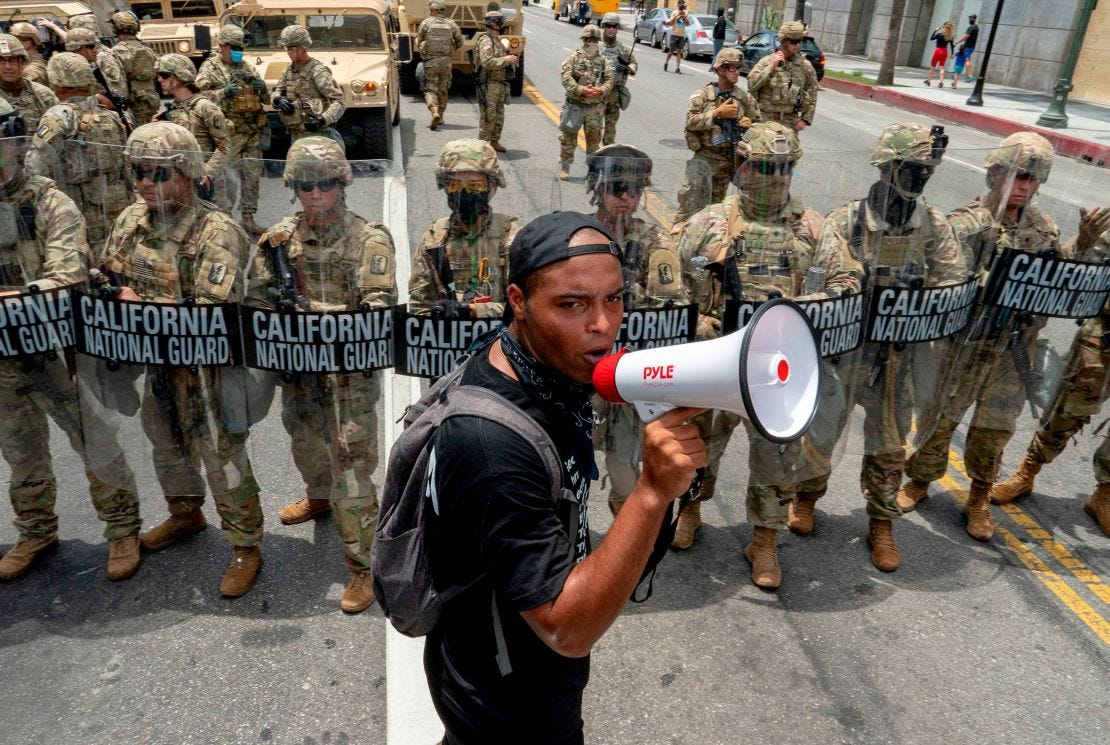Immigration: The Battle Of Los Angeles
Trump’s directive, signed Saturday, represents an extraordinary use of presidential power.
LOS ANGELES — Tensions in Southern California erupted into a national flashpoint this weekend after President Donald Trump ordered the deployment of at least 2,000 National Guard troops to Los Angeles County—without the consent of California’s governor—marking a rare and controversial escalation in the federal immigration crackdown.
The surprise move fol…




